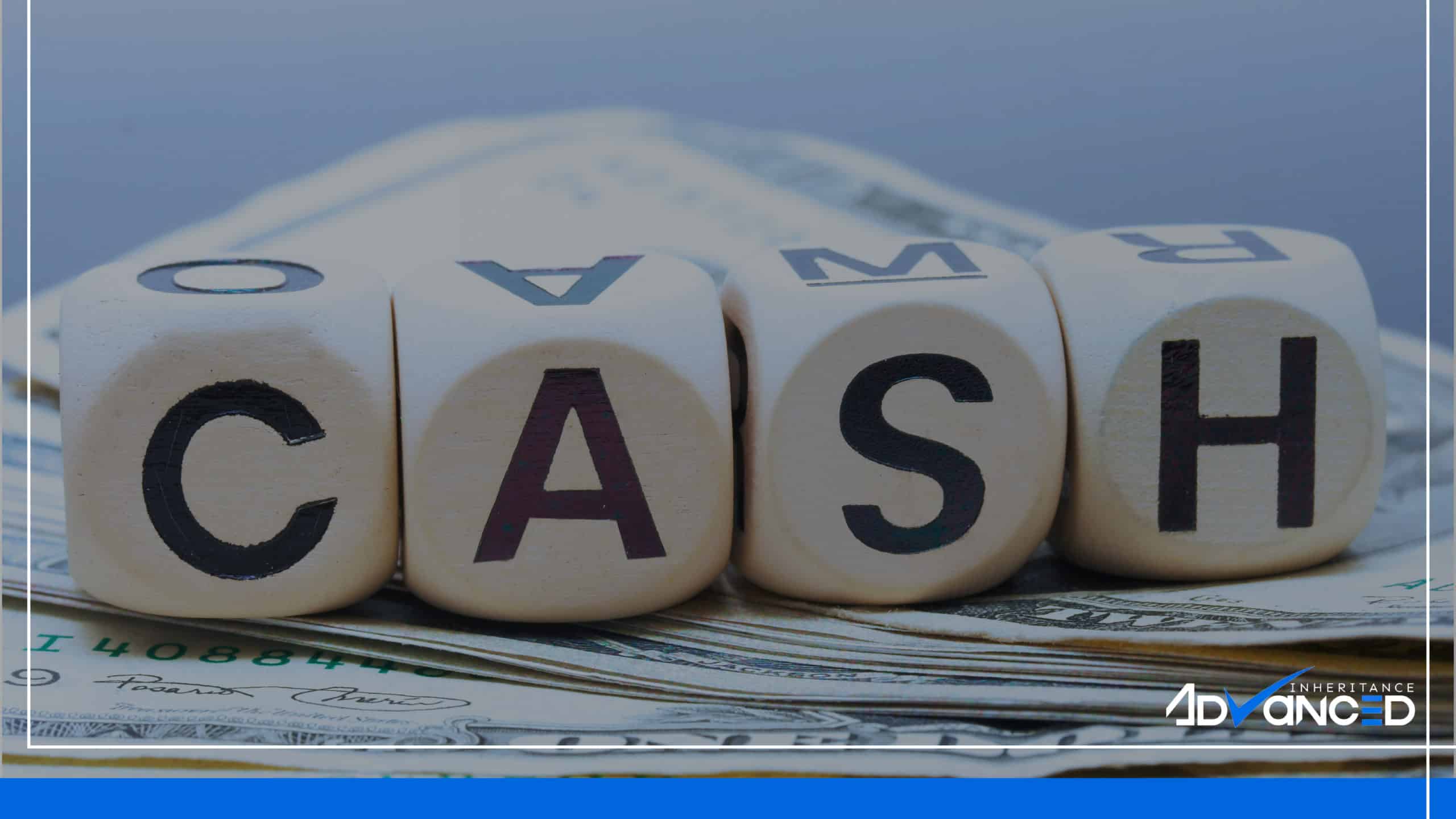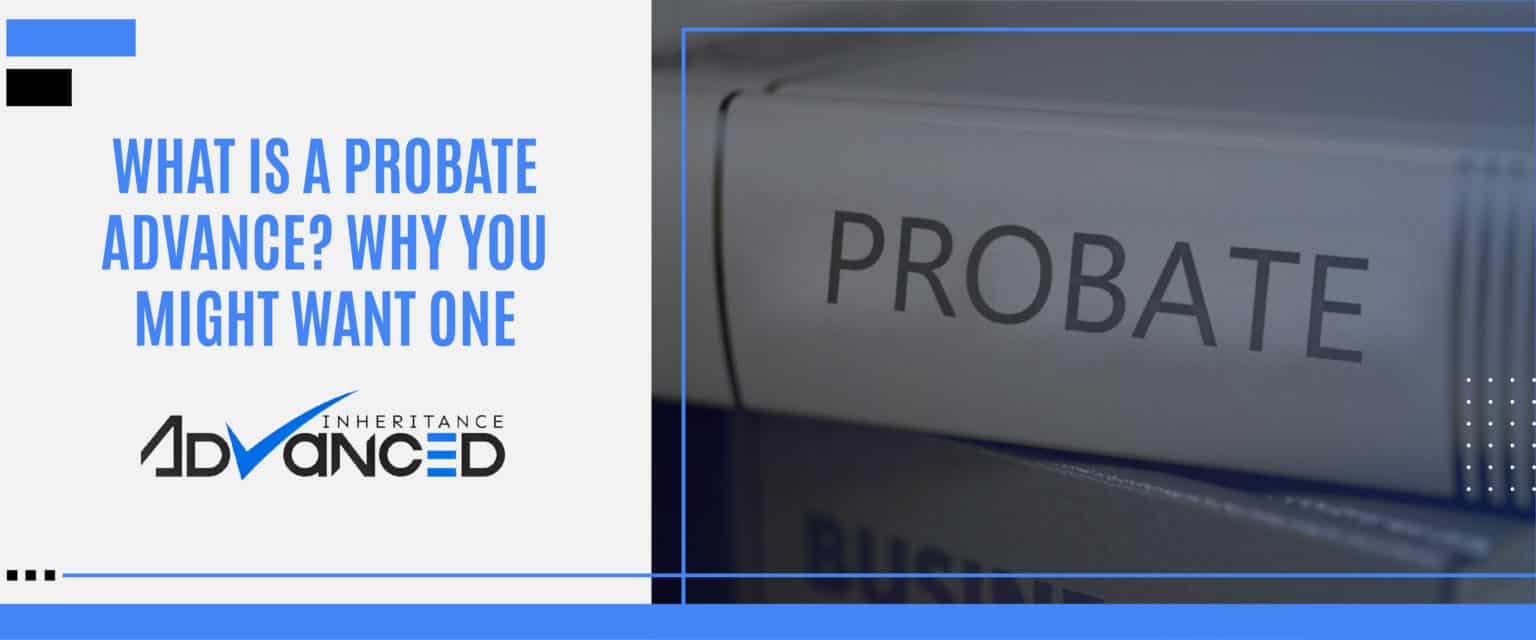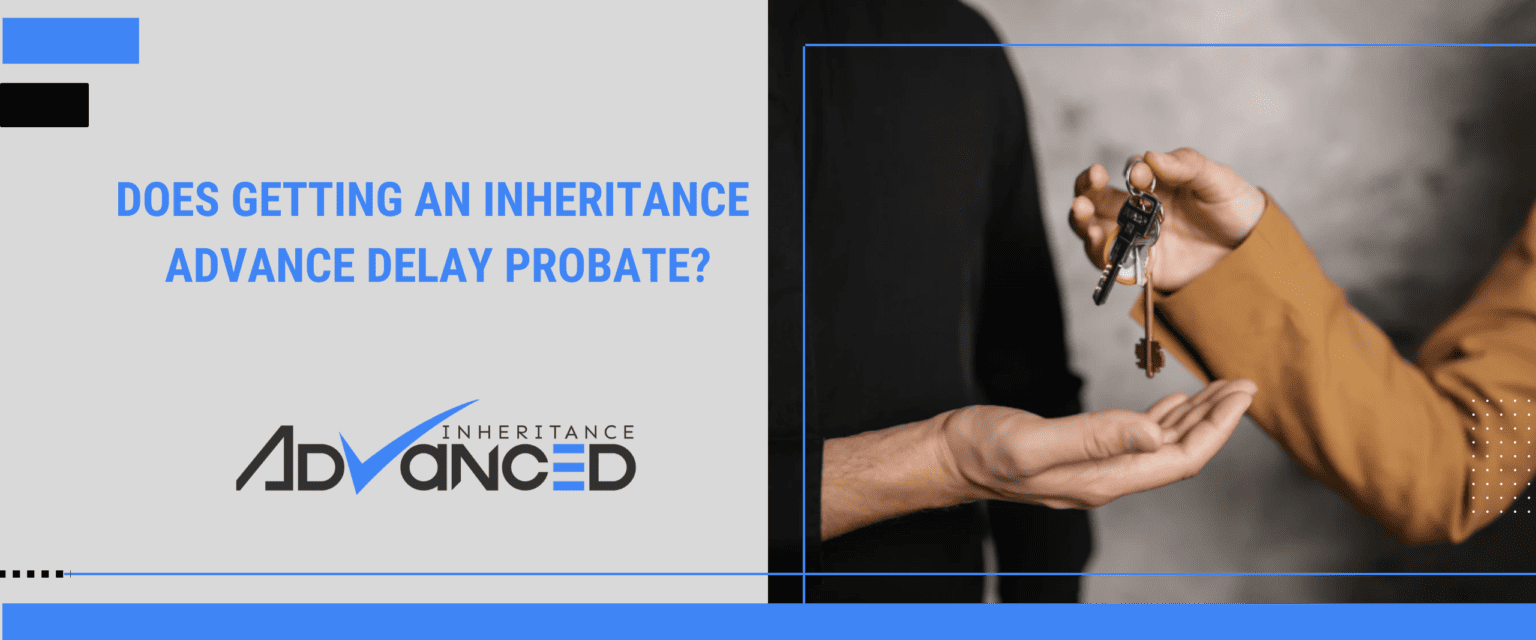Receiving your inheritance early may look like a straightforward procedure but it can take a long time to go through probate. If you are a beneficiary or an heir, you might have to wait anywhere from 9 months to 3 years to receive your inheritance if it is in probate. Actually receiving your inheritance can be costly if you are going through probate and it’s not feasible for many heirs and beneficiaries to wait until probate is over to receive their inheritance. It’s important to understand your options to receive inheritance funding early.
Luckily, at Inheritance Advanced, we’ve developed an easy system for alternative inheritance funding that is fast and easy. In fact, we’ve helped over 1,500 estate heirs receive their inheritance before probate ends.
There are reasons why the administration of estates can be delayed. This article will show you all of the different ways that you can receive money fast if you are in probate.
7 Ways to Get Your Inheritance Money Early
The wish of any beneficiary or heir is for the probate process to finish quickly. While this may not always be the case, there are certain proven ways to speed up the process of receiving the much-needed distribution of assets. The next few paragraphs will show you how you can do it effectively.
Note that not every one of the options mentioned below will work in every situation.
1)Probate advance
A probate advance is a cash allotment (a portion of the estate) given to a beneficiary or the heir before the probate is duly completed and settled in court. Unlike a loan, the heir doesn’t have to pay interest on this amount and is not liable in cases where the estate amount isn’t sufficient to pay off the advance.
There are tons of reasons why you would need an advance and several benefits to it. First, let us consider a few reasons why you’d need the probate advance in the paragraphs below.
One of the most important reasons why a probate advance may be necessary is for the funding of the decedent’s funeral, especially in cases where the family members may not have as much money for it.
The advance can be requested by the family or even the executor to run some of the household costs of the deceased including home repairs, mortgages, education, family care, and even the probate procedures.
Some benefits of a probate advance can include, but not limited, to the following:
- You only pay back after the final distribution of the probate
- No interest is charged on the advance amount
- There are no periodic payments required to pay back the money
- The probate advance company can give you the money within 3 days, faster than any probate judge can appoint an executor
- All that the probate advance company needs is a few hours to evaluate the worth of your estates for the advance to be processed.
- There are no hidden charges or fees required, so you are only paying back what you’re given.
The probate advance procedure is usually straightforward and stress-free. All you have to do is let the firm know that you’re applying for a probate advance and they file all the paperwork necessary to see it through.
2) Inheritance Advance
An inheritance advance is the same as a probate advance. It is given to you based on the amount of the inheritance that is due to you after administration. Before this advance can be given to you, the inheritance advance company evaluates the total worth of your inheritance and decides on how much you should receive.
However, most people use the terms interchangeably and wrongly. An inheritance advance is only different from an inheritance loan and from the explanations already given above, you should be able to differentiate between these two.
3) Loan on inheritance or inheritance loan
An inheritance loan is also known as a probate loan, and can be applied for immediately after the death of the willer. The heir of the decedent can apply for the loan at the deceased’s bank.
The bank will give you an amount of cash in advance at an interest. Note that an inheritance loan will never give you any amount as much as you would get if the probate were completed normally.
There are hardly any profitable benefits to seeking loans aside from the fact that you will receive the money. What follows is periodic and continuous interest payment which must continue until the probate is settled out of court. The longer it takes for the final distribution to take place, the more you will have to pay.
Inheritance Advanced doesn’t offer loans, instead, we offer advances that are faster, easier to pay back, and leave you with no baggage to bear.
4) Probate Loan
A probate loan is a great option if you need to receive inheritance money early. A probate loan is the same as an inheritance loan and estate loan and treated just like a personal or traditional loan from a bank. A probate loan is different than an inheritance advance or probate advance because there is no credit check or collateralization of the an advance where there is a need for thourough underwriting and interest payments that come with probate loans.
5) Estate Loan
An estate loan is a normal loan that you receive and pay monthly interest on. You use one of your personal properties as collateral to get the loan and when the probate has been administered, you can pay yourself back for all the interests you have paid.
An estate loan is the same thing as a loan on inheritance or an inheritance loan. The terms are used interchangeably by professionals in the probate world. However, most people assume that the estate loan is given based on the entire estate while the inheritance loan is given based on your portion in the estate.
This assumption is not correct as the terms mean the same thing and the loan is only given on your portion of the decedent’s estates.
The loan company will take a lot of time to do a lot of evaluation before this loan can be given to you. The company also sets a limit to how much you can get from the probate. Most heirs and executors never get the amount they desire and at the time that they want it. These benefits only come with the probate advance.
6) Petition The Court For Early Distribution
The court can allow one or more beneficiaries of probate to get a part or the entire inheritance before finalizing the probate procedure. This usually happens if the inheritance is majorly monetary. In cases where the inheritance includes real assets, interests on investments, and many more, the court will hesitate.
There are downsides to petitioning the court to order an early distribution. For example, the administrator/representative must first receive approval from the court on whether to go ahead with the preliminary administration, which may also take some time.
Filing for preliminary or early distribution often comes right after filing creditors’ claim, which, as you know, could take a long time to settle in court, depending on the circumstances surrounding it.
7) Buyout Other Heirs From The Estate
You can get a personal loan or mortgage loan to buy out other heirs during probate. If you already own real estate, that is a form of collateral that you can borrow against. You can get a mortgage on an existing piece of property and buy out another heir’s inheritance if everyone agrees. This is a very common practice an happens frequently. Many people also fund an inheritance buyout by receiving a probate advance.
Inheritance funding, also known as estate funding or probate financing, is a financial solution that allows beneficiaries of an estate to receive their inheritances before the probate process is complete. This can be especially helpful if the estate is tied up in probate for an extended period of time, or if the beneficiaries need access to funds for urgent expenses. In this comprehensive guide, we will cover everything you need to know about inheritance funding, including how it works, who is eligible, and how to apply.
We will also explore alternative options for accessing inherited funds and provide tips for managing your inheritance wisely. Whether you are a beneficiary seeking to expedite the distribution of your inheritance or an executor looking for ways to help the beneficiaries of an estate.
What Are The Different Types Of Inheritance Funding Options?
There are several types of inheritance funding options, including:
- Probate loans: These loans provide beneficiaries with a cash advance on their inheritance before the probate process is complete. The loan is secured by the assets in the estate, and the borrower repays the loan with interest once the estate is settled.
- Inheritance loans: These loans are similar to probate advance loans, but they are not secured by the assets in the estate. Instead, the borrower uses the expected inheritance as collateral for the loan.
- Inheritance purchase agreements: In this type of arrangement, a third party purchases the beneficiary’s right to receive their inheritance in the future. The third party pays the beneficiary a lump sum upfront, and the beneficiary agrees to transfer their inheritance to the third party once it is received. This is also known as an inheritance cash advance.
- Inheritance trusts: A trust is a legal entity that holds assets on behalf of a beneficiary. An inheritance trust can be set up to hold the assets of an estate until the beneficiary is ready to receive them.
- Sales of inherited property: Beneficiaries may also choose to sell an inherited property, such as real estate, to access the funds they need.
- Hard Money Loan: Hard money lenders can provide a personal loan that will need to be repaid with high interest.
It’s important to note that each of these options has its own pros and cons, and it’s important to carefully consider which option is best for your specific situation.
How can you apply for Inheritance Funding?
To apply for an inheritance advance, you will need to gather some documentation and complete certain steps beforehand. These may include obtaining a copy of the decedent’s death certificate and will, obtaining legal documents related to the probate process, and providing identification. You will also need to provide certification from the estate’s administrator indicating your expected inheritance amount as a beneficiary. It is important to note that the process for applying for inheritance financing may be more complex than that for other types of loans.
Get Your Inheritance Early With Inheritance Advanced
Instead of waiting months, or even years to get your probate inheritance or share, you can simply apply for an inheritance advance in less than an hour and get the cash within three days.
Note, as mentioned earlier, that with an inheritance cash advance, you don’t have to pay any interest on the amount given to you. The company simply takes record and valuation of the estate and gives you a tangible amount that’s worth the value of your estate. You can get all that within three days. That’s way shorter than the period it will take for the court to approve of an executor.











